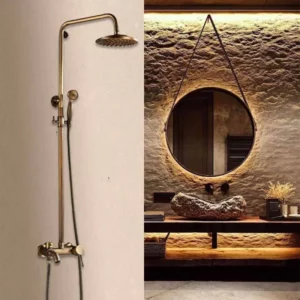Negotiating prices with bath mixer factories can be challenging for procurement officers, especially when aiming to secure the best deals without compromising on quality. The key is to approach negotiations with a well-informed strategy and a clear understanding of both your needs and the supplier’s capabilities. This guide will equip you with essential tips and techniques to ensure successful negotiations and optimal pricing.
To negotiate the best prices with a bath mixer factory, start by building a foundation of clear communication and trust. Research the market to understand fair pricing and gather quotes from multiple suppliers to leverage better deals. Use polite but assertive phrases, offer value-added incentives, and be flexible in your approach to find a mutually beneficial agreement.
By implementing these strategies, you’ll be well-prepared to enter negotiations with confidence and achieve favorable outcomes.
How to Negotiate Price with Manufacturers?
Establishing Communication
Clear and trustworthy communication is the cornerstone of successful negotiations. Begin by building a rapport with the manufacturer, showing that you are serious about a long-term partnership. Regular, transparent communication helps in understanding each other’s needs and expectations. Establishing communication early sets the stage for a successful negotiation process. Engage with your supplier through multiple channels like emails, phone calls, and even face-to-face meetings if possible. Being consistent in your communication and promptly addressing any queries or concerns they may have builds trust and shows that you value their business. Moreover, it opens up the possibility for more personalized interactions, where both parties can discuss needs, expectations, and limitations more openly, leading to a more amicable negotiation process.
Researching Market Pricing
Knowing the going rate for bath mixers is key. Do some serious digging to get a handle on the average prices and the quality variations across different suppliers. This knowledge gives you the upper hand to spot fair pricing and recognize when you’ve hit the jackpot with a good deal. Use industry reports, trade publications, and online resources to gather comprehensive data about current market conditions. This will help you to understand price trends, seasonal fluctuations, and factors influencing costs. By being well-informed, you can enter negotiations with realistic expectations and a clear benchmark, making it easier to argue your case effectively. Additionally, knowing the market landscape allows you to identify which suppliers offer the best value for money, ensuring you don’t settle for less than what you deserve.
Learning from the Manufacturer
Take the time to learn about the manufacturer’s processes, challenges, and cost structures. This understanding can reveal areas where cost savings can be made, benefiting both parties. It also shows the manufacturer that you are invested in a mutually beneficial relationship. Attend factory tours, request detailed breakdowns of their cost components, and ask questions about their production methods. This can uncover opportunities for efficiency improvements that could lead to cost reductions. For instance, if a manufacturer faces high shipping costs, you might negotiate for bulk orders to be shipped less frequently, saving costs for both parties. Demonstrating an interest in their business operations can also foster a collaborative spirit, encouraging the manufacturer to work harder to meet your needs.
Selling the Vendor on Your Value
Make it clear why the manufacturer should want to work with you. Highlight your order volumes, potential for repeat business, and any other perks you bring to the table. This can make the manufacturer more willing to offer better pricing. Provide evidence of your reliability, such as a history of timely payments and consistent order sizes. Discuss your plans for future growth and how this could lead to even larger orders down the line. Emphasize any unique aspects of your business that set you apart from other buyers, such as your market reach, reputation, or any innovative projects you’re involved in. By clearly presenting the value you bring, you can make a compelling case for why the manufacturer should consider offering you more favorable terms.
Getting Multiple Quotes
Don’t just settle for the first quote you get. Request quotes from several manufacturers to compare prices and services. This not only helps in finding the best deal but also gives you leverage in negotiations. If a preferred supplier knows you have competitive quotes, they may be more willing to negotiate. Ensure that the quotes are for comparable products and services to make an accurate assessment. Ask for detailed quotations that include all potential costs, such as shipping, taxes, and any additional fees. This thorough approach prevents unexpected costs from arising later and provides a complete picture of what each supplier is offering. Use these quotes to negotiate by discussing with each supplier how their competitors’ offers compare, which can motivate them to lower their prices or add extra value to their offerings to secure your business.
Trying Different Negotiation Angles
Flexibility is key in negotiations. Be open to discussing various aspects of the deal, such as payment terms, delivery schedules, or order quantities. Sometimes, slight adjustments in these areas can lead to significant cost savings. For example, offering to pay a higher deposit might secure a lower overall price, or agreeing to longer lead times might reduce production costs for the manufacturer, which could be passed on to you as a discount. Exploring these different angles allows both parties to find a middle ground where they feel satisfied with the terms. Additionally, consider non-monetary aspects of the negotiation, such as marketing support or extended warranties, which can add value to the deal without affecting the price directly.
Speaking to Other Customers
Get feedback from other customers who have worked with the manufacturer. Their experiences can provide insights into effective negotiation strategies and what you can realistically expect in terms of pricing and service. Reach out to your network or look for reviews and testimonials online. Ask specific questions about their negotiation experiences, the challenges they faced, and how they overcame them. This firsthand information can be invaluable in shaping your approach and avoiding common pitfalls. Additionally, learning about the satisfaction levels of other customers can help you gauge the manufacturer’s reliability and quality, ensuring you make a well-informed decision.
Leading with a Deposit
Offering to pay a deposit can be a powerful negotiation tool. It shows your commitment and seriousness, which can prompt the manufacturer to provide better pricing or terms. Discussing the possibility of an upfront payment early in the negotiations can set a positive tone and demonstrate your financial stability. This can reassure the manufacturer that you are a low-risk client, making them more willing to offer discounts or flexible terms. However, ensure that the deposit agreement is clearly defined in the contract, specifying what happens to the deposit in various scenarios, such as order cancellations or delays, to protect your interests.
How to Ask for a Lower Price Politely?
Effective Phrases and Techniques
Using the right language can make a big difference in negotiations. Phrases like “What would your cash price be?” or “Is that the best you can do?” can open the door for further discussions on price reductions. Always remain polite and respectful to maintain a positive relationship. The tone of your request should be friendly and cooperative rather than demanding. You can also use phrases like “I am looking for a long-term partnership and would appreciate your best offer” or “Considering our potential future business together, can you offer a more competitive rate?”. These phrases show your interest in a continued relationship and can prompt the supplier to consider better pricing.
Timing Your Requests
Timing can significantly impact your negotiation success. Asking for a discount at the end of a quarter or fiscal year, when suppliers might be eager to meet sales targets, can be more effective. Understanding the supplier’s sales cycle and choosing moments when they are more likely to be flexible can give you an advantage. Additionally, making your request during a slower business period for the supplier can increase your chances of getting a discount, as they may be more inclined to secure your order to boost their sales. Timing your negotiation requests to align with these critical periods can enhance your bargaining power significantly.
Understanding the Supplier’s Perspective
Consider the supplier’s position and constraints. By understanding their needs and limitations, you can propose solutions that are beneficial for both sides, making them more willing to negotiate on price. Engage in discussions about their cost structures and any challenges they face. For example, if a supplier has high inventory costs, you might offer to place larger orders less frequently to help them manage their stock better. Showing empathy and a willingness to accommodate their needs can foster a cooperative atmosphere, making the supplier more receptive to your pricing requests. This approach not only helps in securing better prices but also strengthens the overall business relationship.
Building Rapport and Trust with Suppliers
Importance of Relationships
Strong relationships with suppliers lead to better negotiations. When a supplier trusts you, they are more likely to offer favorable terms. Regular communication, honesty, and reliability are key to building this trust. A good relationship can also mean better service, faster response times, and a more collaborative approach to problem-solving. Over time, as trust builds, suppliers may offer you exclusive deals or prioritize your orders during busy periods. Investing time in relationship-building can yield significant long-term benefits, making your negotiations smoother and more productive.
Strategies to Build Trust
Be transparent about your needs and constraints, fulfill your commitments, and provide constructive feedback. Showing appreciation for their efforts also goes a long way in building a strong partnership. Regularly check in with your suppliers and show genuine interest in their business. Celebrating milestones or acknowledging their contributions to your success can strengthen the bond. Additionally, addressing any issues promptly and fairly reinforces your reliability and builds trust. These strategies help create a positive and supportive environment, encouraging suppliers to go the extra mile for you during negotiations.
Offering Value-Added Incentives
Examples of Incentives
Incentives such as long-term contracts, bulk order commitments, or pre-payment can encourage suppliers to offer better pricing. These incentives reduce their risk and can lead to more favorable terms for you. For instance, offering to sign a multi-year contract can provide the supplier with financial stability, motivating them to offer discounts in return. Similarly, committing to a minimum purchase volume over a specified period can secure you better rates due to the guaranteed business. Tailoring these incentives to the supplier’s needs can make your offer more attractive and lead to better negotiation outcomes.
How They Can Help Negotiations
By offering something of value to the supplier, you create a win-win situation. This approach not only helps in reducing costs but also strengthens the business relationship. For example, agreeing to longer payment terms might improve the supplier’s cash flow, making them more willing to offer discounts. Discussing these incentives openly during negotiations can help identify mutually beneficial solutions. This collaborative approach fosters goodwill and can lead to ongoing benefits, such as priority treatment during high-demand periods or access to new product lines before they hit the market.
Negotiating the best prices with a bath mixer factory requires a strategic approach and effective communication. By building rapport, researching market prices, and being flexible, you can secure deals that benefit both parties. Implement these tips to enhance your negotiation skills and achieve the best possible outcomes.




